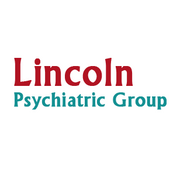How Does Distraction Help When Coping With Depression?

There is no one-size-fits-all cure for depression. The mental health disorder affects the mind and body in complex ways that demand professional help and a tailored management approach. The specialists from Lincoln Psychiatric Group in Nebraska advise that what works for one individual may not be effective for another. However, they explain that distraction is a useful coping mechanism most benefit from. They share how it helps and whether it may be right for you.
What Is Distraction?
Distraction refers to removing yourself from a situation or source of emotional distress. By allocating time and space away from an affecting event, you can mitigate feelings of anxiety and depression. Wait until strong feelings have subsided before revisiting that moment and processing what occurred.
 For instance, after receiving a negative comment from a friend or a frustrating work email, take a long walk, exercise, or engage in a hobby that makes you happy. The next time you approach the dilemma, you will do so with a clear frame of mind. Note that the method is different from avoidance, which entails ignoring the matter. It is also more productive and healthier than numbing the pain through alcohol, which only dulls the emotional response to the event rather than clear your mind.
For instance, after receiving a negative comment from a friend or a frustrating work email, take a long walk, exercise, or engage in a hobby that makes you happy. The next time you approach the dilemma, you will do so with a clear frame of mind. Note that the method is different from avoidance, which entails ignoring the matter. It is also more productive and healthier than numbing the pain through alcohol, which only dulls the emotional response to the event rather than clear your mind.
Which Forms of Distraction Are Most Effective?
As mentioned above, alcohol is not an effective approach; the substance is a depressant that can exacerbate feelings of sadness, anger, and anxiousness. Similarly, binge-watching television is an unhealthy approach as it constitutes a form of avoidance and numbing. Instead, choose productive activities that reframe your mind and focus toward a calmer, more open perspective.
Exercising, for instance, boosts mood by releasing feel-good endorphins. Not only does it give you some time to temporarily distract yourself from a problem, but it also ensures your physical health. Similarly, catching up with friends, walking the dog, performing household chores, and preparing a healthy meal are wellness-oriented distraction tactics.
If you are experiencing depression and distraction doesn’t help, you do not have to go it alone. If the grief feels overwhelming, turn to the professionals at Lincoln Psychiatric Group for help. They have over 75 years of experience and offer quality guidance and support to improve their patients’ lives. Learn more about their mental health services by visiting their website, or call (402) 476-7557 to speak with an associate.
About the Business
Have a question? Ask the experts!
Send your question

